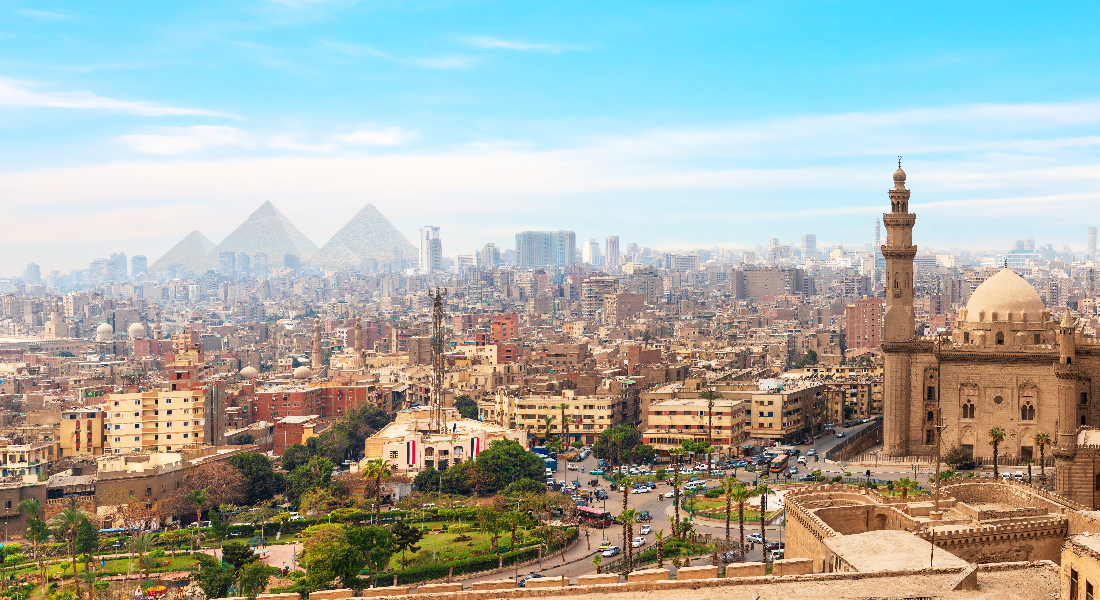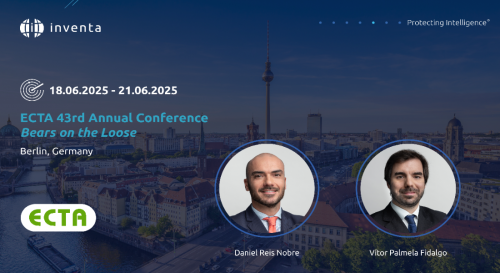
IP considerations when investing in Egypt
With a population growth rate of 2.25%, Egypt has the second biggest population in Africa, as well as the third-largest economy. The Egyptian government is promoting investment in all economic sectors and is already a continental leader in some. For instance, Egypt is the largest construction market in Africa, with more than $350 billion of active projects.
Just under half (48%) of active projects are represented by the real estate sector. The energy and transport sectors take up second and third places with 18% and 17%, respectively, of active projects.
The five top projects in Egypt are described below:
Egypt is racing to build an impressive new capital city in the desert east of Cairo. This $58 billion project will promote residential, commercial, government, universities, entertainment, leisure and transport sectors and is set for completion by 2023.
Located in front of the New Administrative Capital, the Nour City project aims to meet the requirements of population and urban growth in the East Cairo axis, currently home to about 4.5 million people. Its population is expected to reach 10 million people by 2030. Talaat Mostafa Holding has revealed plans for a new city east of Cairo with an investment cost of $31.8 billion.
The Egyptian Ministry of Electricity and Renewable Energy will develop the new El Dabaa Nuclear Power Plant. The Egypt Ministry of Transportation, meanwhile, is set to build the country’s first high-speed train line (the Ain Sokhna El Alamein Railway) that will connect the Red Sea to the Mediterranean. The entire route will run for 1,000km, and the first 460km-long section will link up El Alamein on Egypt’s Mediterranean coast and Ain Sokhna.
Egyptian Petrochemicals Holding Company is also developing a 2.2 million tonnes per annum petrochemical facility and a 650,000-tonne petroleum refinery in Ain Sokhna.
Major international companies will be the main contractors for the above-mentioned projects, such as Systra (France); China Civil Engineering Construction Corporation (China); Rosatom (Russia); Siemens (Germany); Bechtel (United Arab Emirates); DFC and the US EXIM Bank (United Arab Emirates).
"This increase in the number of international trademark applications originating from Africa appears to suggest that more companies are protecting their businesses abroad. "
Trademarks on the rise
In 2019, international applications in Africa increased 24%, with Egypt ranking in the third position, showing dominance in North Africa. Egypt’s Central Agency for Public Mobilisation and Statistics (CAPMAS) has revealed that the number of applications submitted to the Egyptian Trademark Office reached 18,735 in 2020, compared to 17,760 applications in 2019, an increase of 5.5%.
Along with the above-mentioned projects and new business opportunities, it is expected that the increase of trademark applications in Egypt will be even more notable.
This increase in the number of international trademark applications originating from Africa appears to suggest that more companies are protecting their businesses abroad.
The legal basis is the Intellectual Property Rights Law No. 82 of July 2 2002, in force since June 2003, which replaces the Trademark Law of 1939.
Egypt is a member of the Madrid Agreement concerning the International Registration of Marks (Act of Stockholm of 1967) and a member of the Madrid Protocol.
The process from application to registration might take between 18 to 32 months to be completed at the Egyptian trademarks office, the Internal Trade Development Authority (ITDA). This process requires a legalised power of attorney up to an Egyptian consul and, for companies, a certificate of incorporation legalised up to an Egyptian consul, with verified Arabic translation.
Steps for registration include:
- Filing of the request before the ITDA;
- Formal and substantial examination conducted by the ITDA and issuance of acceptance letter;
- Payment of publication of the application in the IP Bulletin;
- Two-month period for the filing of oppositions by third parties who considered themselves to be adversely affected with the registration of the trademark; and
- Payment of the registration fees and issuance of the registration certificate.
This is a co-published article, which was originally published in the World Intellectual Property Review (WIPR).
Currency Info
Final charges will be made in USD.
Currency conversion is for information purposes only and accuracy is not guaranteed. Overseas customers are encouraged to contact their bank or credit card provider for details on any additional fees these institutions may include for currency conversion.
- USD 312.389 NGN
Territory List
There are no results for your search.
- Africa
- Algeria
- Angola
- Benin
- Botswana
- Burkina Faso
- Burundi
- Cameroon
- Cape Verde
- Central African Republic
- Chad
- Comoros
- Congo (Republic)
- Côte d'Ivoire
- Democratic Republic of the Congo
- Djibouti
- Egypt
- Equatorial Guinea
- Eritrea
- Eswatini (Swaziland)
- Ethiopia
- Gabon
- Gambia
- Ghana
- Guinea
- Guinea-Bissau
- Kenya
- Lesotho
- Liberia
- Libya
- Madagascar
- Malawi
- Mali
- Mauritania
- Mauritius
- Mayotte
- Morocco
- Mozambique
- Namibia
- Niger
- Nigeria
- Réunion
- Rwanda
- Sao Tome and Principe
- Senegal
- Seychelles
- Sierra Leone
- Somalia
- South Africa
- South Sudan
- Sudan
- Tanzania (mainland)
- Togo
- Tunisia
- Uganda
- Western Sahara
- Zambia
- Zanzibar
- Zimbabwe
- Africa (OAPI)
- Africa (ARIPO)
- Other
- East Timor
- Macao
- Maldives
- Portugal
- European Patent (EPO)
- European Union Trademark (EUTM)
- International Trademark (Madrid System)
- Patent Cooperation Treaty (PCT)




